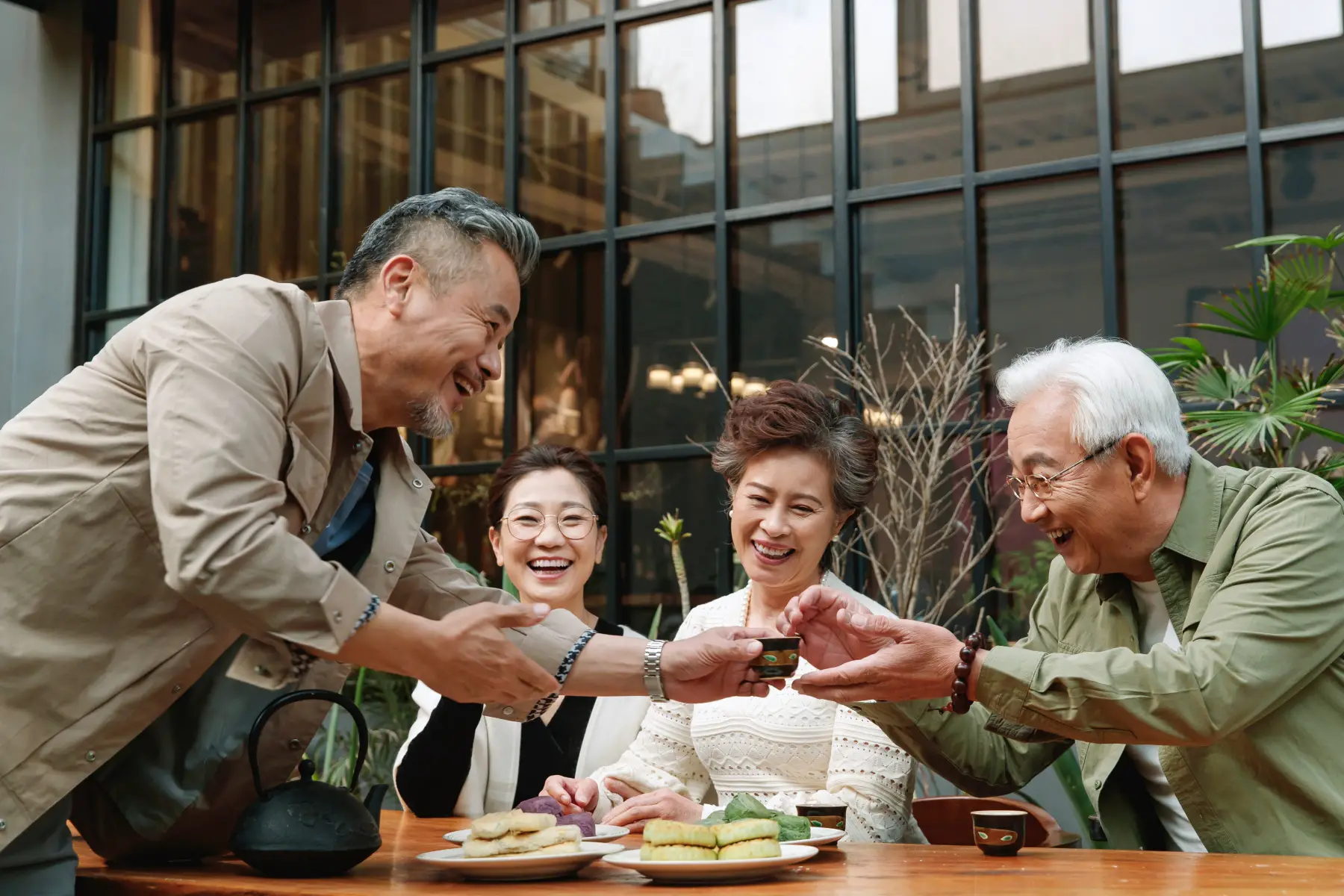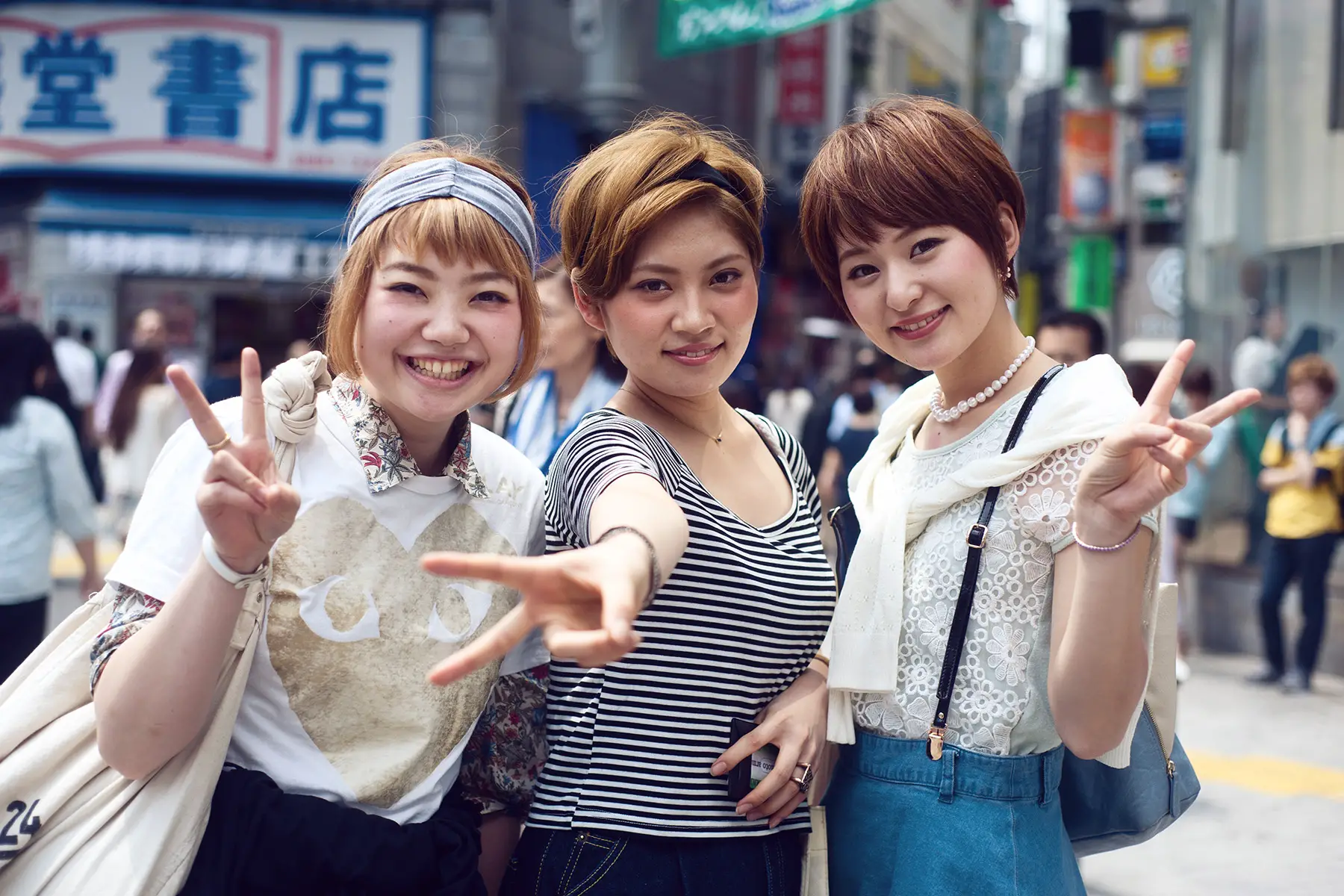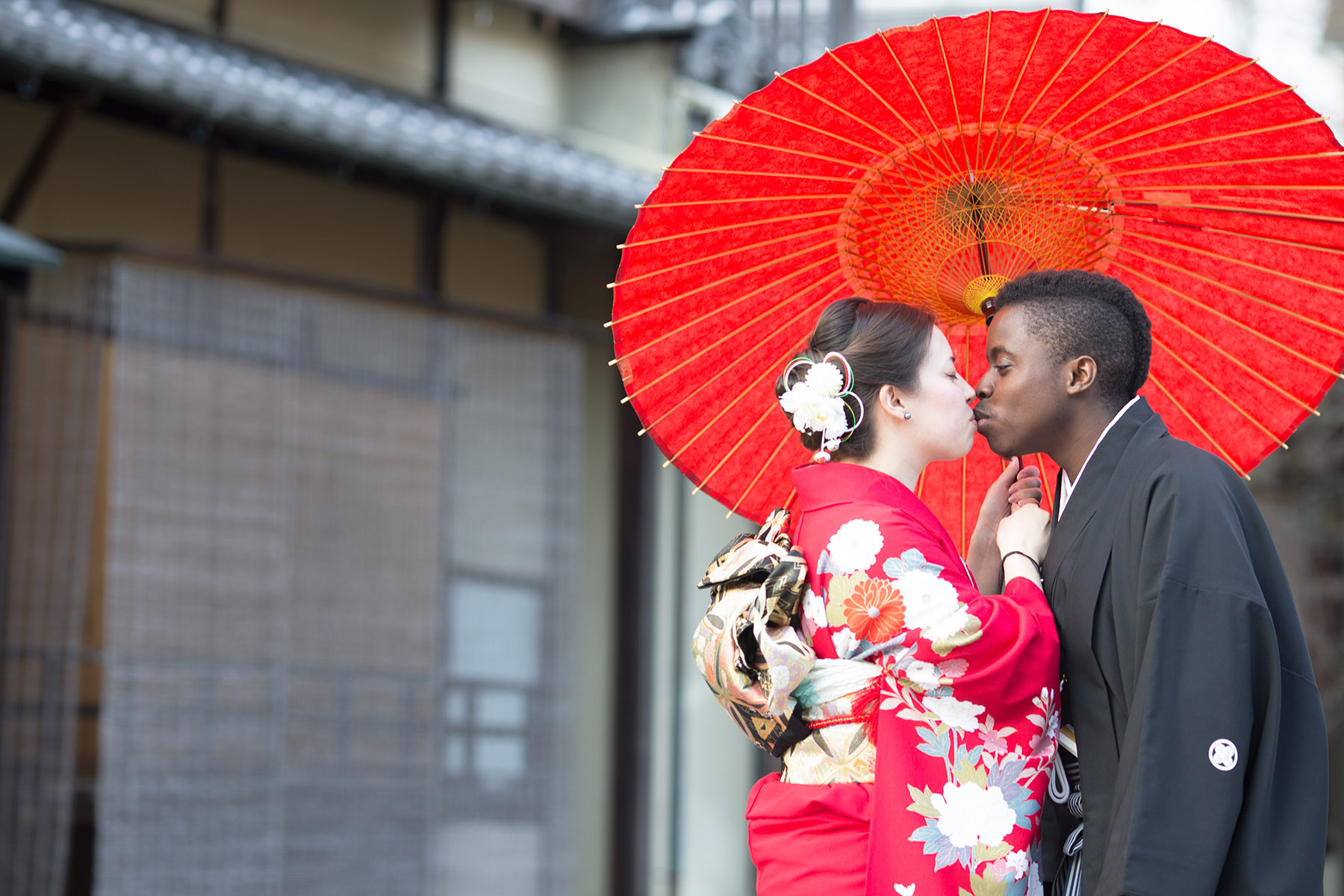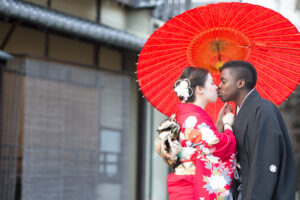Dating (交際) in Japan can be quite a unique experience. Entering the dating pool as an expat in a foreign country with a language and customs that seem different from what you are used to adds extra complexity.
Although the modern Japanese dating scene has similarities to other countries, you’ll still come across many traditional aspects. Understanding and respecting these are key to finding success in your dating life in Japan.
This article will provide you with the right tools to navigate it, including:
Find love with Expatica Dating
Are you looking to meet single expats and potentially find ‘the one’? Finding love as an expat can be challenging, but that’s where an online dating site can help. Expatica Dating will help you meet eligible singles in Japan and find the perfect match. Register for free today and begin your quest!
How easy is it to date in Japan?
More than one-third (34.1%) of unmarried adults in their 20s to 40s have never been in a romantic relationship, and roughly 25.6% of the population has no intention of ever getting married (2024). This is a record high for the country.
So, it is fair to say that dating in Japan is relatively challenging. But why?

According to a 2024 survey, 19.4% of women and 23.7% of men think having a relationship is a waste of time and money. In fact, the top reason why Japanese men don’t want to get married is the financial strain of married life.
Women, on the other hand, don’t want to compromise their freedom and independence. Due to the Japanese traditional gender norms, long-term relationships often lead to additional burdens for women, such as work, household chores, raising children, and caring for elderly parents.
Although marriage is no longer seen as a safety net to guarantee a stable life, 49.3% of women and 43.5% of men do want to get married (at some point).
What (perhaps) doesn’t help is the country’s attitude toward working. A career is very important in Japanese society, and long work hours make it difficult to find the time and energy to meet people.
Moreover, Japan is quite conservative when it comes to dating. Public displays of affection (PDA) are not very common, and couples take it slow until they are in a committed relationship. In fact, if you get physical early on, the other person may consider the date as just a casual hookup.
How do you meet single people online in Japan?
The best dating websites in Japan
Unsurprisingly, in the modern era, one of the best ways to dive into Japan’s dating scene is by checking out the world of online dating.
To meet other single, like-minded internationals, try our own online dating service: Expatica Dating Japan. Popular with both men and women, it helps to connect people who share similar interests and passions and ultimately find love on the island.
Another popular local site is Match.com, which offers both free and paid subscriptions. The website may require payment in order to access special features.
The best dating apps in Japan
International apps such as Bumble, Tinder, and Yahoo! Partner are relatively common in Japan. However, the most popular dating app is Tapple, where people use similar interests such as food, movies, or sports as a jumping-off point to find dating partners.

Pairs and Omiai, which came in second and third place, offer great alternatives if you’re well-versed in Japanese. Pairs is a paid app that offers features like chat, photo sharing, and match recommendations. Similarly, Omiai is known for its strict screening process. It requires singles to upload an official document to verify their identity and start exchanging messages.
Singles looking for same-sex relationships in Japan may want to check out the dating apps Grindr, Her, and Taimi, Zoe.
Although many people use these dating apps, they tend to stumble upon the same issues as they would in other countries. For example, the apps are primarily based on looks and often seem to cater to those looking to just ‘hook up.’ So, if you are looking for something more serious, you may rather sign up for an online matchmaking service or go and meet people in person.
Indeed, the most popular dating apps in Japan are matchmaking and marriage platforms. For example, both Ange and Zexy Enmusubi are designed for those seeking serious relationships and genuine connections.
How do you meet singles in person in Japan?
If online dating is not for you, then in-person meetups can be a good alternative. You can start by joining a club or group activity. From cooking classes to sports teams, joining a club is a great way for potential partners to meet and bond over shared passions and interests.

Meeting people through friends or family
A more traditional way of meeting a partner in Japan is through mutual friends or family. After all, the people closest to you tend to know you best. Someone might introduce you through a group outing, typically at a restaurant or bar. This casual approach makes it easier to break the ice and get to know the other person.
People in Japan tend to spend a lot of their time at work or school, and much of their social life involves their colleagues or classmates. It is not uncommon to go for drinks or dinner with them at the end of the day, so it’s no surprise that romance blooms from time to time. However, it is important to note that some workplaces have strict rules about romantic relationships.
Local matchmaking events
An important aspect of the Japanese dating scene is group dating, or gokon (合コン). While it’s not as popular with young people as it once was, it remains an essential tradition. Groups of friends, usually of mixed genders, meet up on a blind date to find a romantic partner. It is a great way to meet different people and get a feel for the dating scene.
A rising trend in Japan is kon-katsu (婚活) dating, or matchmaking parties. The purpose of these parties is to provide an opportunity for singles to meet a potential life partner. Often, you will need to pay a fee. Matchmaking agencies organize many of these events and advertise them on social media. Even local governments organize these events to encourage people to get married and have children.
What is the Japanese dating etiquette?
A typical dating scenario
Whether you meet through online dating apps, friends, or work, the first date is typically casual. In the past, men were expected to initiate the first date, but these days, it is not unusual for women to do so. Just make sure to be clear that it is a date (デート): it is not uncommon for people of the opposite sex to go to coffee or have a nice meal together as just friends.

Spontaneous dates are not the norm in Japan. Typically, Japanese people like to plan their schedules in advance.
However, planning a date does not need to be complicated. The country has a rich food culture, so many dates involve going to restaurants or cafes. In fact, a 2022 survey found that 43.2% of men and 57.8% of women said they would choose “a stylish café or restaurant” as the setting of their first date. Other common dating activities are going to the movies, visiting amusement parks, or attending museums.
Dating behavior in Japan
Like anywhere in the world, it is important to be polite, respectful, and mindful of cultural norms when dating in Japan. Being loud and aggressive is considered rude, but so is paying more attention to your phone than your companion. There are a few social rules to consider if you want to get past the first date.
Punctuality is of utmost importance in Japanese culture, so be sure to show up for your date on time or early. It is not only polite but shows you are reliable. Greetings are essential, too. Notably, refrain from hugs and cheek kisses, as these are typical ways of greeting.
In a more formal business setting, you may bow to each other, but this is often not the case in more casual situations. In most cases, you will use a verbal greeting, such as konnichiwa (こんにちは) or hello. Sometimes your date will bring a small present such as flowers or chocolates. While a kind gesture, this is not required.
The dress code is neat and modest. Avoid wearing anything too revealing, too casual, or too flashy. People in Japan tend to dress fashionably, even in informal situations.
Conversation is essential when getting to know someone, but it is best to keep the conversation light. Taboos include discussing money, politics, religion, and work. Having a negative attitude won’t go down too well either, as it’s considered rude, and you’re unlikely to get a second date.
Likewise, privacy is highly valued in Japan. Questions about personal matters and family issues on a first date are inappropriate.
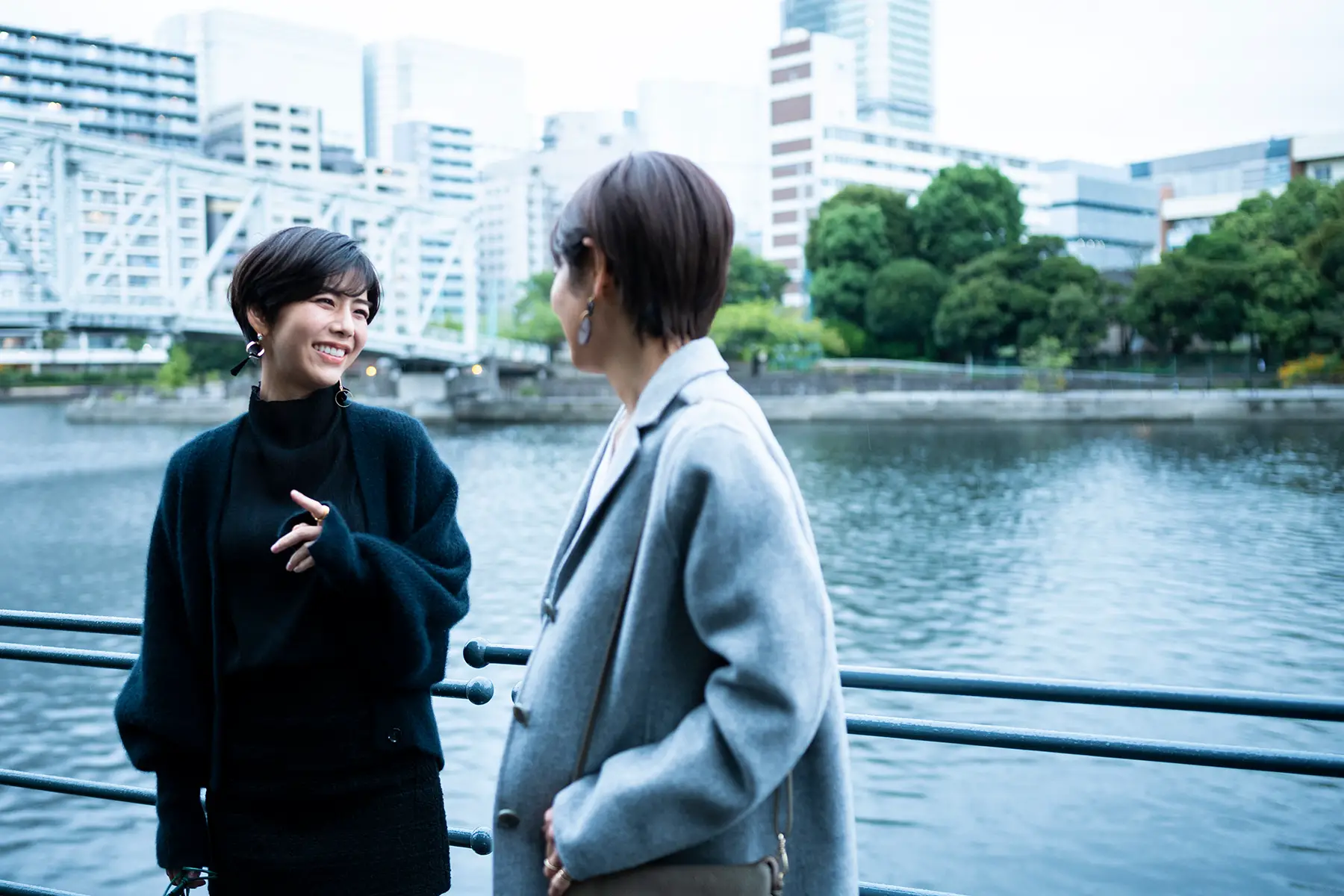
Gender roles in Japan
Traditionally, men are expected to pay the bill on a first date in Japan. However, times are changing, and younger generations seem to find it more acceptable to split the bill. According to a report by Omiai, straight couples in their teens and twenties are happy to split the bill. Meanwhile, they found that those 40 or older still preferred the man to pay.
What are relationships like in Japan?
Relationships tend to progress slowly in Japan. It can sometimes take months for a couple to consider a relationship exclusive. There is a strong value placed on building trust and understanding before fully committing. Therefore, patience is important.
By the second or third date, couples tend to spend longer together – it is not uncommon to set aside a full day for a date. This is an opportunity to get to know each other and form a deeper bond. They are also more likely to hold hands, kiss, and be more open to physical contact overall.
Although Japanese society tends to favor traditional family setups, these views are changing due to economic factors and exposure to other lifestyles and values. As such, many couples take their relationships to the next commitment level by moving in together without getting married.
Having said that, some couples cannot afford their own place due to Japan’s high living costs. Often, young people save money by staying with their parents, especially in big cities. Of course, the downside to this is a lack of privacy.
Therefore, many couples dating in Japan use love hotels (ラブホテル). These short-stay hotels can be booked by the hour for intimate purposes. Love hotels are convenient, affordable, and private. Thanks to these hotels, there is no risk of revealing a little too much to your partner’s parents.

When do you meet your partner’s family?
Meeting your partner’s parents is a big deal in Japan. Family plays an important role in society, and often, a relationship is kept secret until it is serious. Indeed, it can take months or even years for Japanese couples to tell their parents about their significant other. Meeting someone’s parents means the relationship is genuine, and marriage may be on the cards.
Getting married in Japan
The role of the family in weddings
It is traditional for men to ask the bride-to-be’s parents for their permission before proposing. This usually takes place at a dinner where the groom-to-be presents the family gifts to show his respect and affection.
The engagement ceremony (Yui-no) is significantly more important when getting married in Japan. Taking place several months before the wedding date, this event is where the families of the bride and groom meet and formalize the engagement. During the ceremony, families exchange symbolic gifts, such as tea cups and fans.
The challenges facing unmarried couples
Although unmarried couples don’t face outright discrimination in Japan, they do encounter social and legal obstacles that make marriage the more conventional choice.
Japanese law does not recognize common-law partnerships in the same way as many other countries around the world. This means that unmarried partners do not have automatic inheritance rights, hospital visitation privileges, or joint tax benefits. If children are involved, only the mother automatically gains parental authority unless the father formally acknowledges paternity.

Social expectations also play a role in Japanese dating. While younger generations in cities like Tokyo and Osaka are more accepting of unmarried couples, many older Japanese still view marriage as a natural progression of a serious relationship. Women, in particular, may face pressure from family or colleagues to marry, especially as they approach their 30s.
Housing can be another consideration. Most landlords do not have an issue renting to unmarried couples, but some more traditional property owners – particularly outside major cities – may prefer to rent to married tenants.
In the workplace, being unmarried is unlikely to cause any major issues, though traditional companies may still expect employees to eventually marry and start a family. Social benefits, such as spousal tax deductions and employer-sponsored family perks, are generally reserved for legally married couples.
Things to keep in mind when dating in Japan
Is Japan LGBTQ+ friendly?
Japan is a mixed bag when it comes to the lesbian, gay, bisexual, transgender, and queer community (LGBTQ+). Despite 72% of the population supporting same-sex marriages (同性婚) or civil unions, Japan is the only nation in the G7 that has not legalized gay marriage. Indeed, the country ranks 55th out of 197 in the world on the 2025 LGBT Equality Index.
Although attitudes are shifting, LGBT+ people in rural areas are often forced to live a closeted life. Many are forced to hide their existence for their own safety. In more urban areas, however, the gay scene is starting to move above ground.
Tokyo has by far the best LGBT-friendly districts (e.g., Ni-Chome Shinjuku) where you can party the night away at a gay bar or nightclub. The capital also has annual celebrations, such as Tokyo Pride and the Rainbow Reel Tokyo.
Other big cities in Japan offer LGBTQ+-friendly lifestyle opportunities on a smaller scale, including Osaka, Kyoto, and Hiroshima. Websites like Queer In The World and Travel Gay can provide a good overview of where to go.
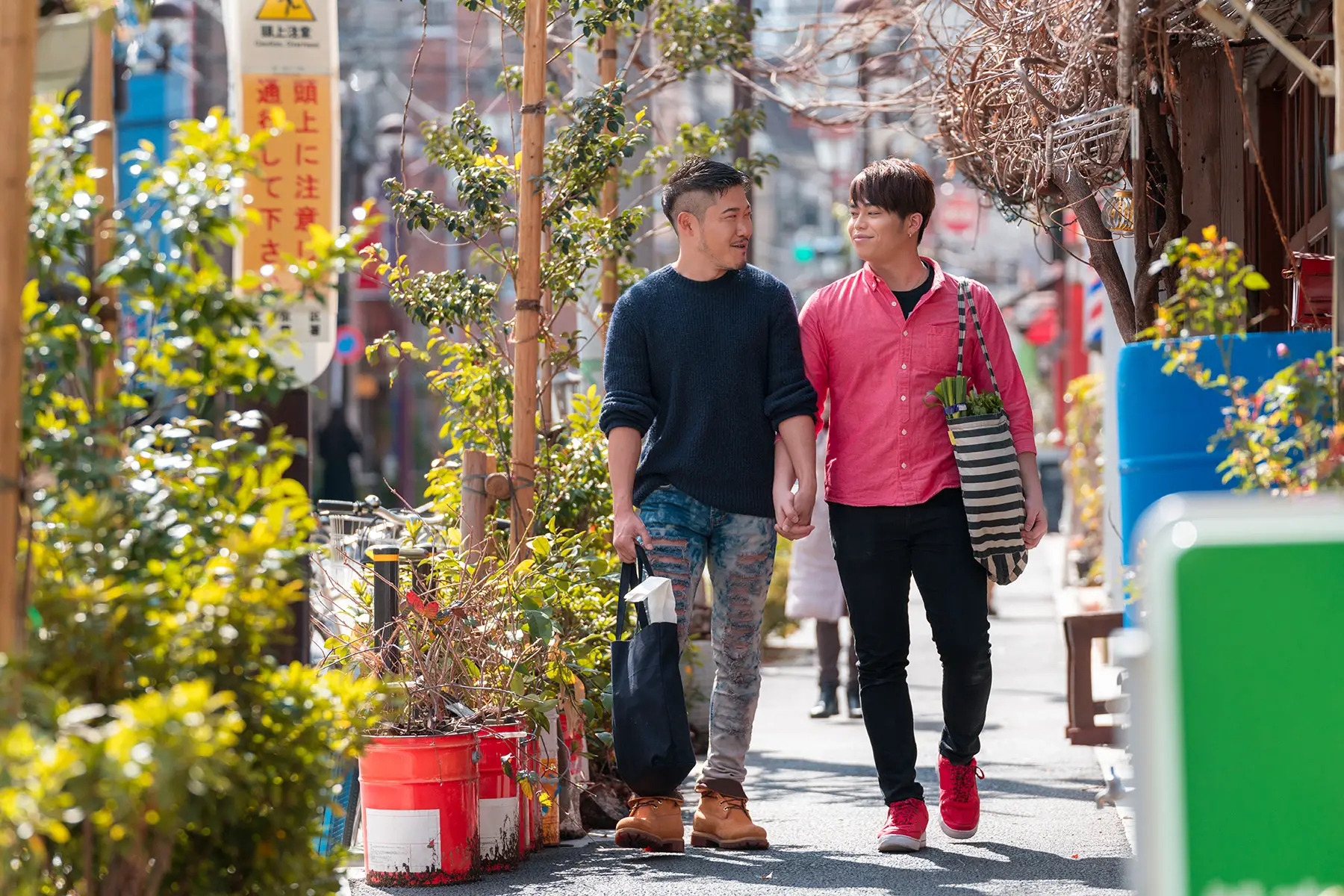
What are the views on mixed dating in Japan?
Japan is generally open to mixed dating, particularly in large cities and among younger generations. Interracial relationships are becoming increasingly common, especially in cosmopolitan areas like Tokyo, Osaka, and Fukuoka, where there are larger expat communities.
While many families are accepting, some traditional households may have concerns about language barriers, cultural differences, and how a foreign partner might fit into Japanese social norms.
Similarly, interfaith relationships are generally a non-issue. Most Japanese people are not deeply religious, so interfaith dating or parenting is generally not a major source of conflict. However, if one partner comes from a devout background (e.g., Christianity, Islam, or Hinduism), they may face challenges in the largely non-religious society.
What challenges come with online dating?
As in any country, online dating in Japan comes with its risks. People might not always be who or what they say they are on their profile or during initial chats.
Whatever dating sites and apps you try, it is important to be careful and use common sense. Never agree to send money to someone before meeting them, arrange your first date in a public place, and be sure to tell a friend or family member where you’ll be.
Find love with Expatica Dating
Expatica’s online dating platform is designed with your safety and security in mind. With verified profiles and robust privacy features, you can connect with confidence, knowing you’re in a trusted environment.
Useful resources
- Japan Healthcare Info – website in English with information about sexual healthcare in Japan
- Medium – article about dating in Japan as a foreigner




